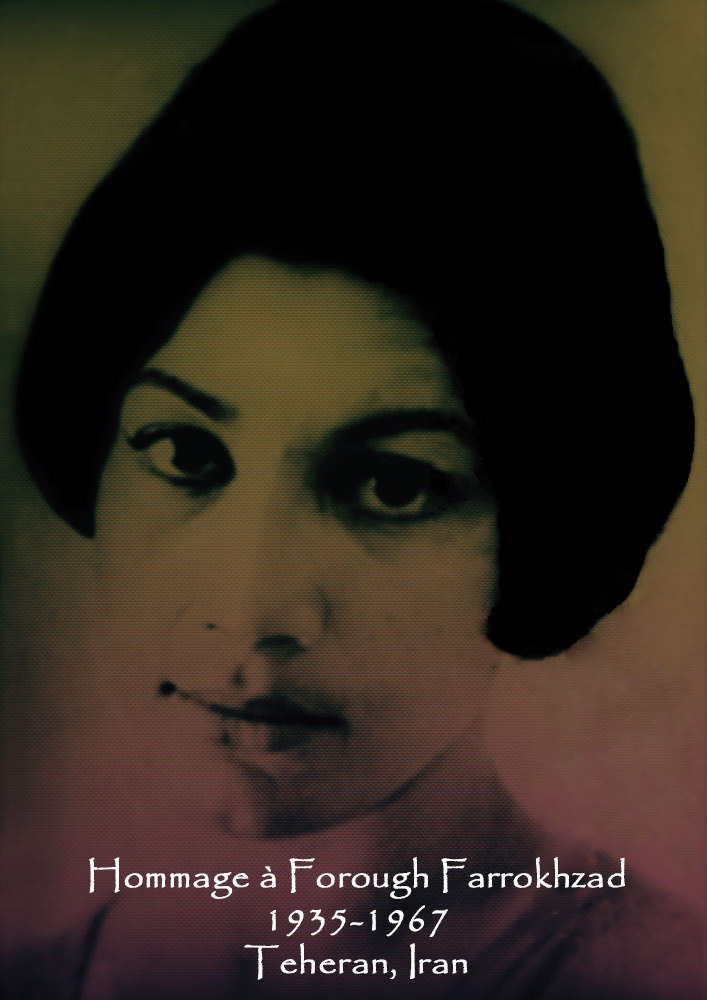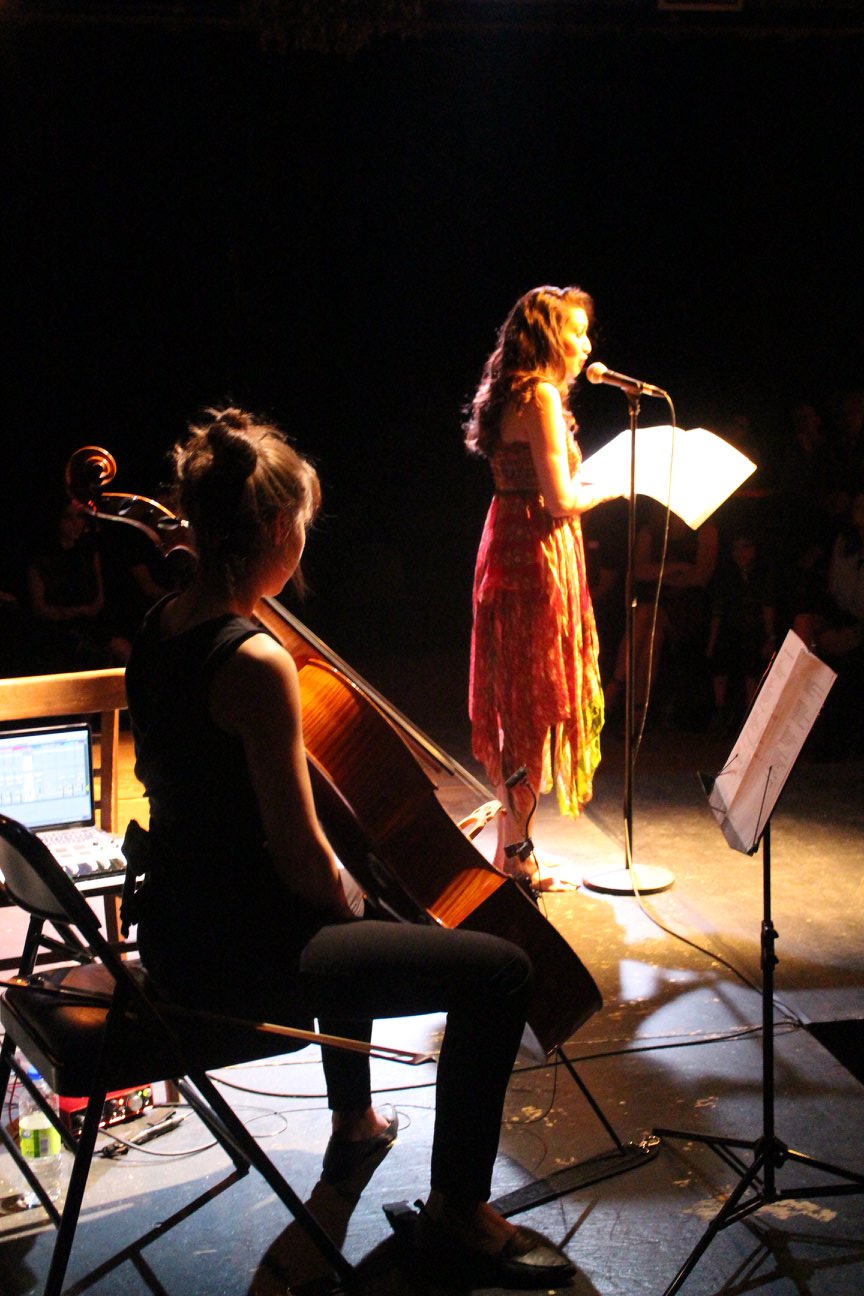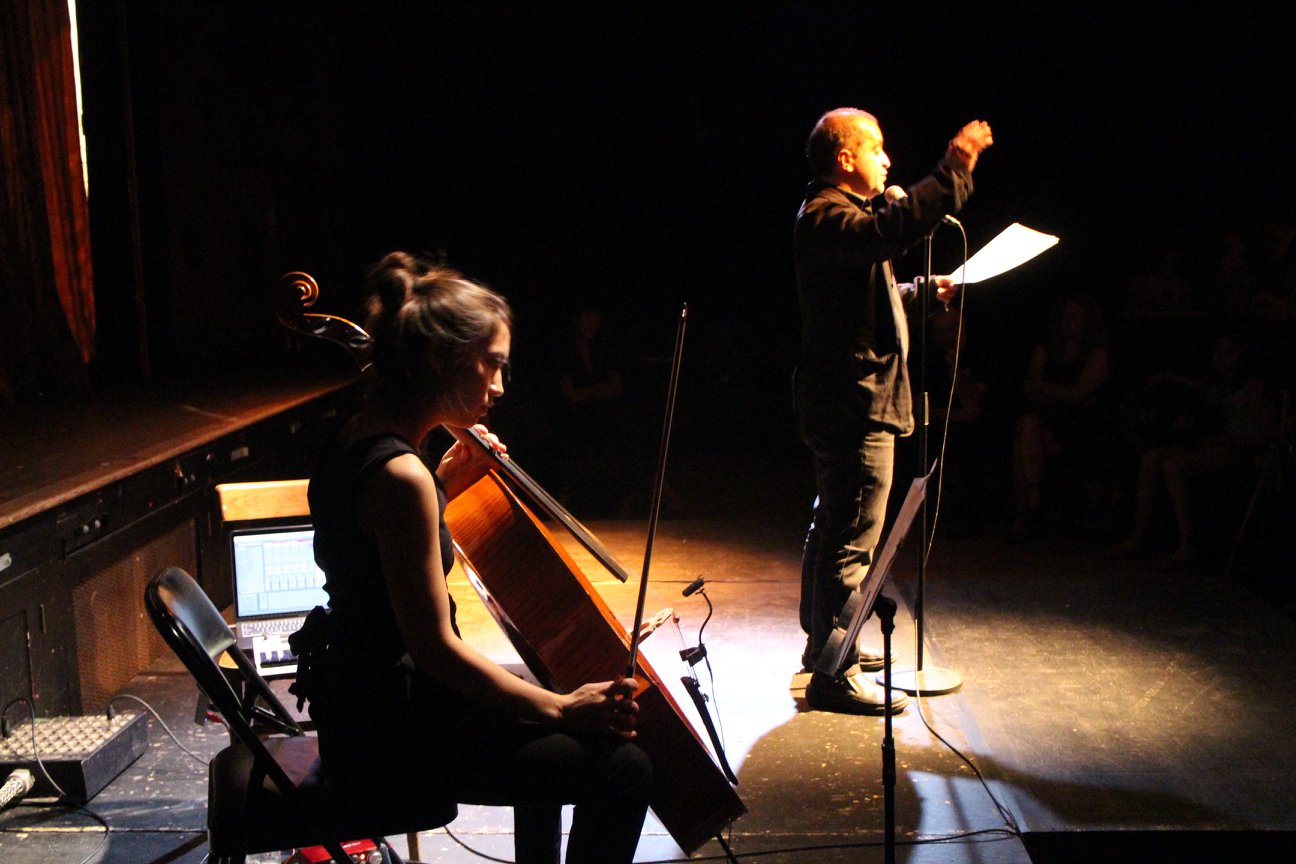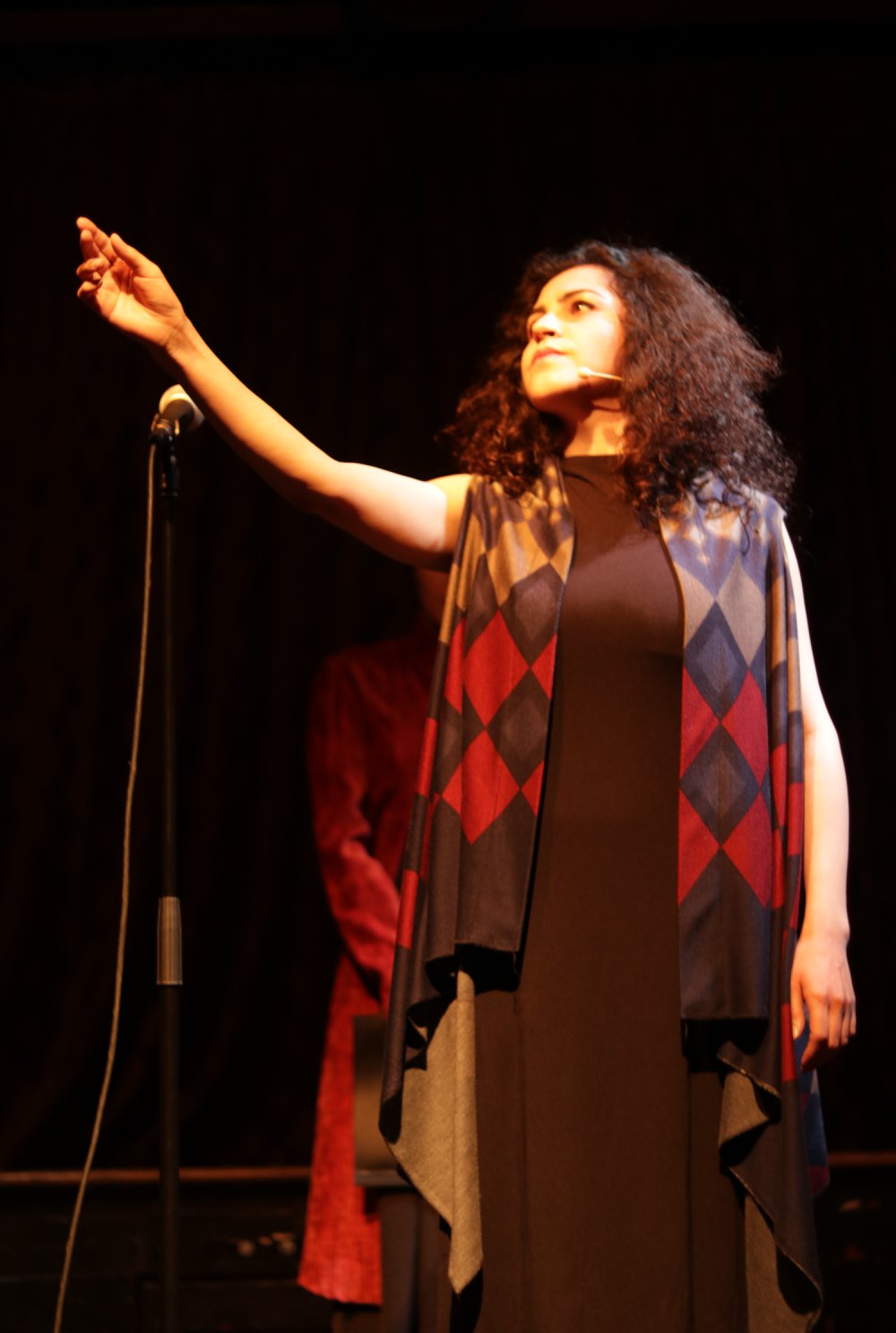Les Versets Terrestres
Festival Accès Asie is pleased to invite you to a multidisciplinary event coordinated by Houman Zolfaghari, titled Les Versets Terrestres, a tribute to the Iranian poet, Forough Farrokhzad.
Description
This tribute to Forough Farrokhzad will feature five Montreal artists, authors, poets, choreographers, and musicians. Hanieh Ziaei, Nasim Lootij, Kim-Sanh Châu, and Houman Zolfaghari will interpret a selection of the poet’s writings, accompanied by cello improvisations by Jane Chan. A projection of The House is black, the only short film directed by Forough, will take place. These artists of our time give voice, body and volume to Forough’s words, explore the meanings in her work and, in so doing, bring to the stage this poet’s brilliance and relevance today.
Et me voilà moi / And here I am
Une femme seule / a woman alone
Au seuil d’une saison froide / at the threshold of a cold season
Au début d’une compréhension de l’existence salie de terre / on the verge of comprehending the damaged existence of the earth
Et du désespoir simple et triste du ciel / and the simple and sad despair of the sky
Et de l’impuissance de ces mains de ciment / and the impotence of these hands of cement
Media
Houman Zolfaghari
“From Montreal, when the eyes turn toward the East, where does the gaze stop?” This is but one question that preoccupies writer, director, and mathematician, Houman Zolfaghari. Figuratively, Houman, it could be said, first appeared in the world of shapes in Hamadan, ancient city perched high in the mountains, former capital to Medes and Persians in Iran. Houman describes himself as, “Poet-mathematician, deprived from childhood, of origin and place, lost in the immense darkness of scattered pages, the dramas of theatre, and the images of film. What is he making under the light of the mirror-moon?” Houman first arrived in Quebec as a teen after spending his early years in Iran and France. Passionate about poetry and mathematics, he simultaneously pursued a career as a mathematician-semantician and an artistic path that led him to playwriting and cinematography. The East’s indelible mark, the vital necessity of poetry, has been indelibly imprinted on Houman.
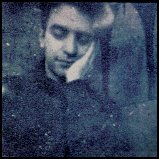
Kim-Sanh Châu – Chorégraphe et interprète
Kim-Sanh Châu is a choreographer and dancer based in Montreal, born in France of Vietnamese origin. Her creations are constantly nourished by these two worlds. She has widely performed and collaborated with renowned artists such as Helen Simard, Sasha Kleinplatz, Mary Williamson St-Amand, and Catherine Lavoie-Marcus. Since 2016, she has completed a residency at the Muong Studio (Vietnam), worked with the company Urban Dance Group (UDG, DanCenter) in Ho Chi Minh City (Vietnam), and conducted research in creation in Hoa Binh (Vietnam).

Nasim Lootij
Choreographer, teacher and contemporary dancer, Nasim Lootij began her work in Iran in 2000. in 2006, she moved to France to study choreography first at Paris 8 University, and later studied at both the Jean Wiener Conservatory and the RIDC (Rencontres Internationales De Danse Contemporaine). In 2012, Nasim studied Laban notation at the National Conservatory of Music and Dance of Paris (CNSMDP, 2012). While in Paris, she choreographed productions in 2012 and 2014. In 2017, she choreographed Moi-Me-Man at Tangente in Montreal, where she has lived since 2015. Nasim teaches technique and creation workshops at the MAI (Montréal, arts interculturels). Nasim’s choreographies are inspired by events in Iran in the 1970s and 1980s that often ended in violence in Iran, her country of origin. Her work includes qualities reminiscent of German expressionism from the 1930s, but which are often subdued by the softness, slowness, and continuity of Iranian art.
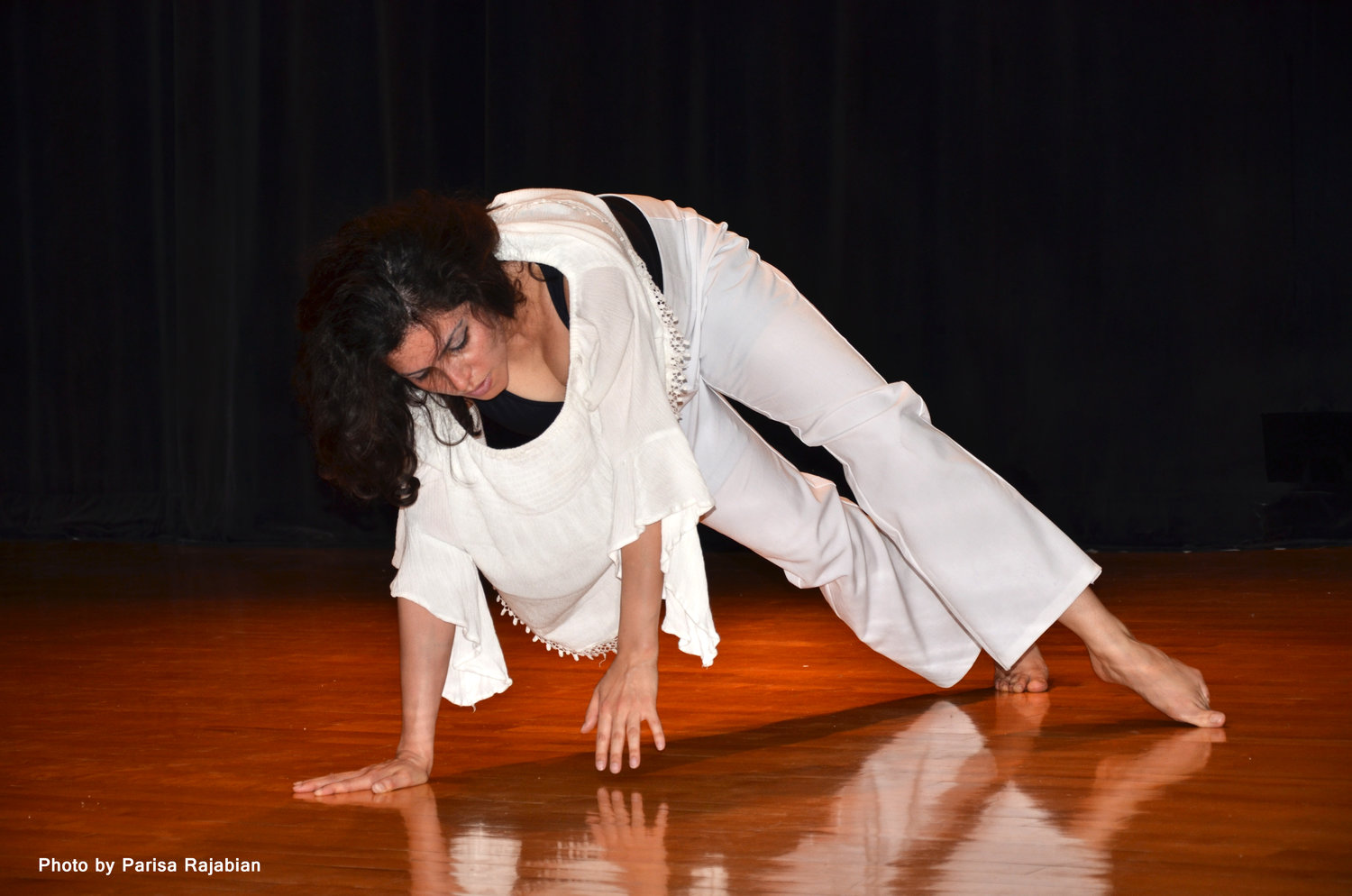
Jane Chan
As a cellist, improviser, and chamber musician, Jane Chan is drawn to diverse modes of listening and emergent sound in ensemble playing. Her expanded practice includes composition, recording, writing, interdisciplinary collaboration, and teaching. In her collaborative work, she thrives on situations that take her out of her comfort zone and allow her to find common ground with artists from diverse backgrounds. In 2017, she attended a residency at the Banff Centre and was nominated for a META award for Outstanding Contribution for her work in the Centaur Theatre production Constellations. She holds a master’s degree in music from McGill University where she trained in classical and contemporary performance with Yegor Dyachkov. She has been an active member of the organizing team of the Montréal Contemporary Music Lab and the Montréal-based NPO Les Sympathiques. She is currently a lecturer at the University of Colorado.
Hanieh Ziaei
Originally from Tehran, Hanieh Ziaei has studied in Brussels (B.A.) and Montreal (M.A. and Ph.D) where she currently resides and works. In her research in art sociology and culture, Hanieh Ziaei looks at the place of artists in Iran’s contemporary society as well as the role of Iranian art in exile. She is interested in the counterbalance of the power of artists and the political and social dimensions of contemporary Iranian art. She writes for many art magazines including Vie des Arts, Séquences and TicArtToc (DAM). She is also a resident researcher at the Observatoire sur le Moyen-Orient et l’Afrique du Nord (OMAN) de la Chaire Raoul-Dandurand at UQÀM and a member of the Cercle des Chercheurs sur le Moyen-Orient (CCMO) in Paris and the Centre d’Études de la Coopération Internationale et de Développement (CECID) of ULB in Brussels.
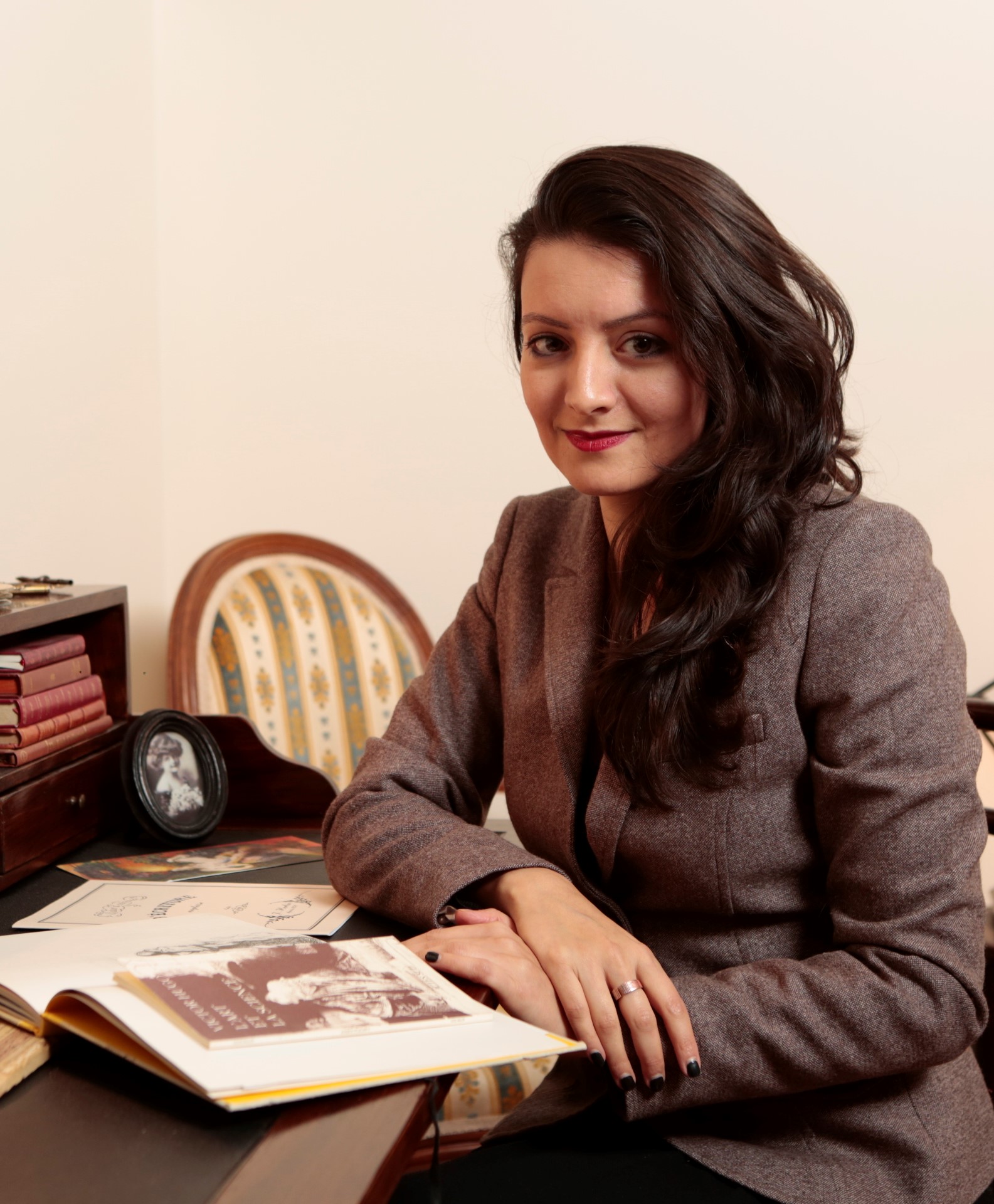
With
Houman Zolfaghari – Writer, Scene Director and Mathematician
Kim-Sanh Châu – Choreographer and Performer
Nasim Lootij – Choreographer and Performer
Jane Chan – Composer and Violinist
Hanieh Ziaei – Art Critic
